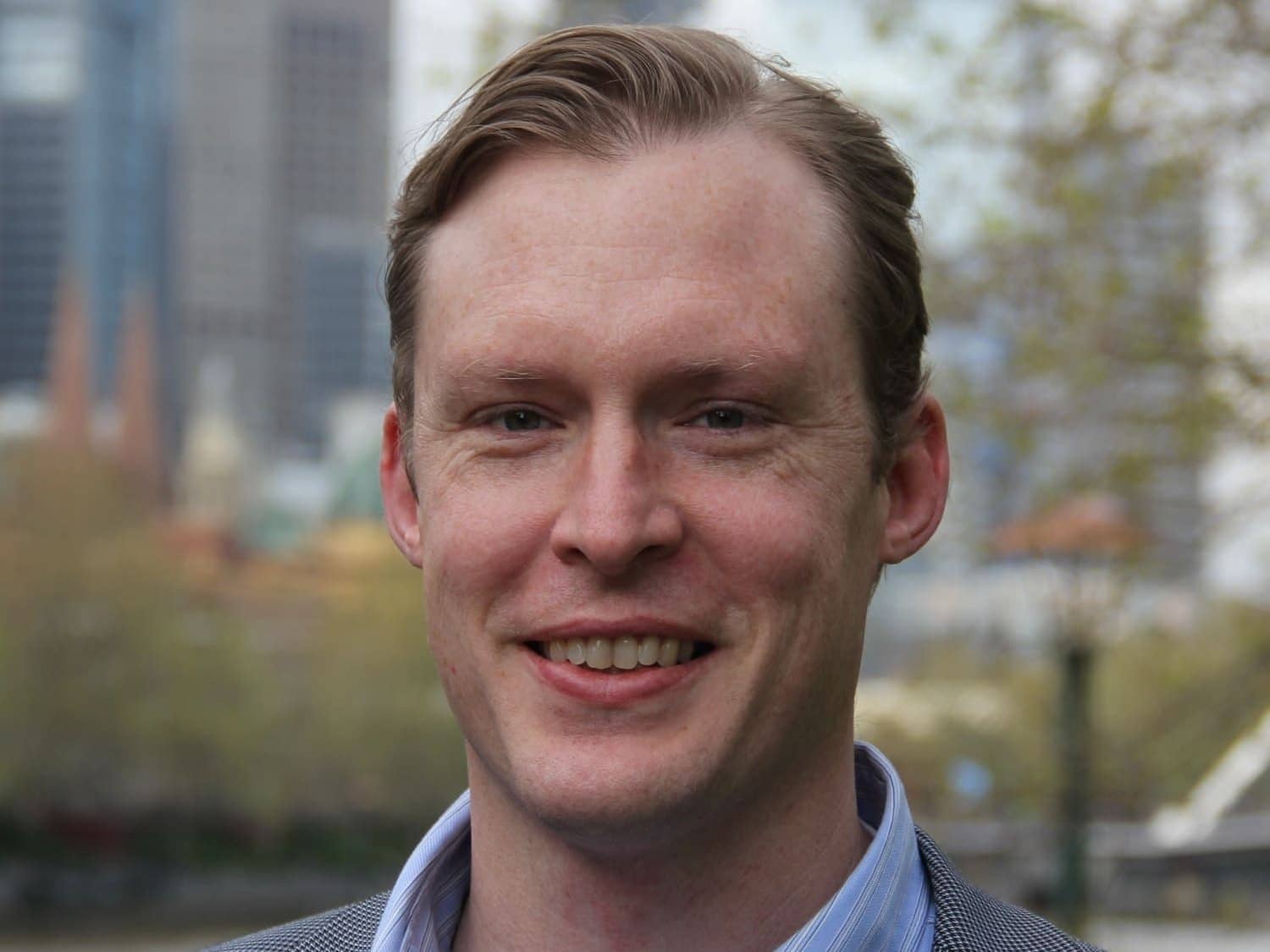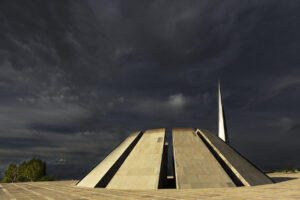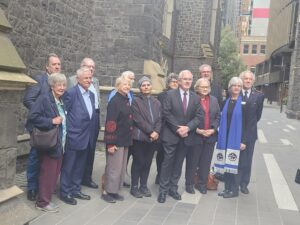
This month we hear from ISCAST fellow Dr Michael Smith. Michael has worked in engineering, marine ecology, climate change research, and computer programming. These days, he builds systems models to improve emergency services. Michael’s PhD was in ecological modelling.
This piece is drawn from an “Integrating science and faith in the workplace” panel discussion at a recent conference run by ISCAST–Christians in Science and Technology. A panel of established scientists, who are also practising Christians, shared their experience. ISCAST fellow Dr Ian Harper, Dean of the Melbourne Business School, facilitated the panel and Q&A.
Ian: Michael, on this theme of integrating faith and science in the workplace, over to you.
Michael: Thanks, Ian. I’ll begin with some science to build context. I started my career in fisheries management, where my expertise is in an area called “management strategy evaluation” or “adaptive management”. It emerged from trying to tackle “wicked problems” in managing the environment.
Fisheries management is an example of a wicked problem. It’s got social, economic, cultural, environmental, even aesthetic priorities, which tend to be in conflict. And it also has that “fun” thing: knotty data. In other words, relevant data is often hard to come by across a lot of things. And yet, we have to make public policy, and government policy, and industrial and ecological policy, for how we’re going to try and manage these systems, not knowing everything we want to know.
These days, I work for the state government looking at demand modelling for emergency services. So, in the case of fire outbreaks, I’m asking, “When fires happen, what systems do we need? What sort of resources do we need? How much funding do we need?” “More” is the simple answer!
However – thank you economists – money is limited. So, the fundamental challenge is how do you determine an optimal, or even an acceptable, allocation of resources when there isn’t enough to go around? For Jesus, a couple of fish and a couple of loaves to feed five thousand people, no problem. For us, more of a challenge! And, despite claiming miracles, a government is not actually able to produce miracles.
Read more: A passion for Jesus and for science drive Karen Hale’s work
So, these wicked problems have no optimal solution. Decisions will make some areas better while other areas worse. I can leave decisions to the politicians. But my academic work, in fisheries and now government, has really been using modelling and decision theory to highlight the trade-offs, the costs, when you make one choice instead of another.
If we’re looking at health or emergency services, these wicked problems are becoming more and more problematic. Increasing interconnectedness of people is going to make pandemics more likely and the impact larger. Likewise for natural disasters: two years ago we had catastrophic fires then catastrophic floods. It’s not a policy statement to say that natural disasters are getting worse, that’s just scientific inevitability.
So, with all that background, the question is, “Should I care theologically?”
Simply as a job, sure – I can do the job and enjoy it. But theologically, should I actually care about any of the decisions? As Christians we may focus so much on a future perfect existence that we neglect the problems of this world in which we actually live. And that’s something I’ve had to reflect on a lot over the last decade: what ultimately is the everlasting value in redeeming a fallen world or working towards its good?
The political power of the institutional church is not something you see in the New Testament. Rather, the New Testament frequently refers to God’s people as living in exile. Peter begins his first letter, for instance, “Peter, an apostle of Christ, to God’s elect, exiles scattered through the provinces.” And later, “Dear friends, I urge you, as foreigners and exiles, live such good lives among the pagans … that they may see your good deeds and glorify God.” And in Daniel and Jeremiah in the Old Testament you see the same sort of thing. Jeremiah tells Israel, “Seek the peace and the prosperity of the city to which I have carried you in exile. Pray to the Lord for it, because if it prospers, you too will prosper.”
Now, in our 21st century Australia, despite a long history of Christian cultural influence, it may seem appropriate to think of the church as being in exile, where institutional support for the church, and public openness to biblical teaching, for instance, are greatly reduced.
So, while these problems that I work on are secular problems, from a theological perspective it’s critical to continue working on them so that I can continue to seek the peace and prosperity of the city into which we have been carried.
Ian: That’s a really thoughtful reflection, Michael. Thank you. Questions have come in from the audience. Let’s ask this one: “Have you been able to effectively share the gospel with work colleagues?”
Michael: There can be a surprisingly long lag-time before we see the results of a conversation. Only a couple of weeks ago, I met with a non-Christian colleague who I’ve known for many years and with whom I’ve had many theological discussions. He was grieving for a friend who had recently died in their thirties from cancer. As we walked back to his office, he says, “Ok, Smithy, hit me with it. What would Chesterton say?” Which was his way of saying, “Where is the meaning in this? I’m asking you for some profundity because I’m looking elsewhere and I’m not finding it.” I’m not sure that he got anything particularly profound from me, but the point is things emerge in people’s lives when they need to.
Ian: Let’s go to another question: “Should Christians proactively disclose at work what some see as controversial beliefs?” How open are we about our beliefs on euthanasia, same-sex marriage, etcetera, that we know are very contrary to the spirit of the times?
Read more: His bubble burst, but this scientist’s faith is stronger for it
Michael: If it’s relevant to your work position, sure. If it’s not relevant to your work, then who cares? In the case of leading an entire organisation, there’s an expectation that the values of organisation and leader align. But for the work I do, it’s the scientific objectivity that’s important. Similarly for a doctor treating me – I don’t need my doctor’s political views; what I need is appropriate treatment.
Ian: Finally, Michael, “What advice would you give to Christian leaders facing a situation where all options available are bad or very disappointing at best? What are we going to do now?”
Michael: Go for the least bad. This is like those “wicked problems.” The way I approach this is trying to understand what I’m actually trying to achieve and which of my options is going to get me closest to it.
There isn’t a good way, for instance, to provide optimal or even adequate medical care to everyone in Victoria. There just isn’t. So essentially, we have to ask: “Which strategy gets us closest?” Go with that, but if possible, try for a better option along the way.
Ian: Thank you, Michael. I’m sure your experience and reflections can encourage our own work journeys.
This is the second in a series with established Christian scientists and science educators. Further conversations, some with younger Christian scientists, can be found at ISCAST here.
For more faith news, follow The Melbourne Anglican on Facebook, Twitter, or subscribe to our weekly emails.







